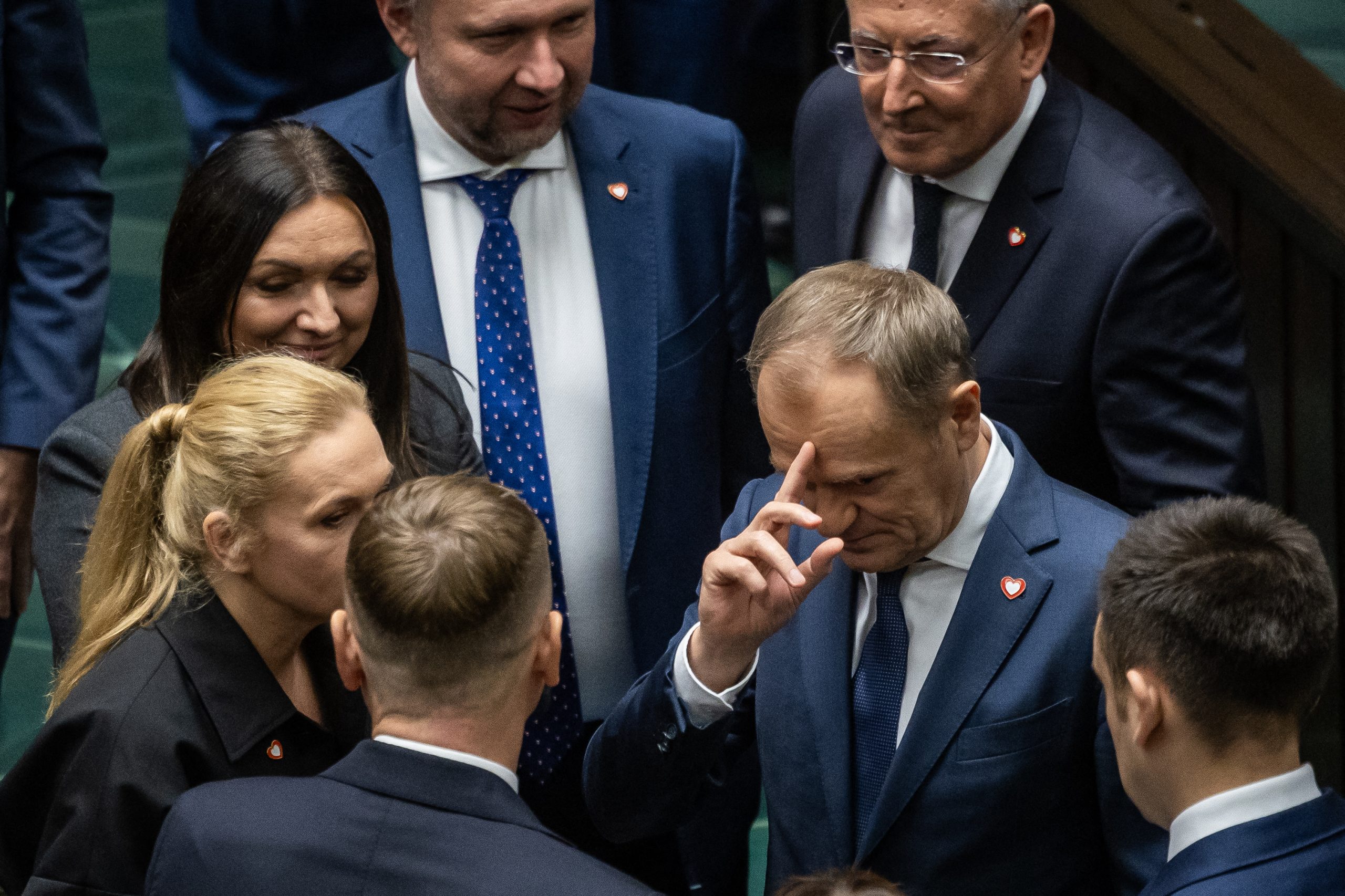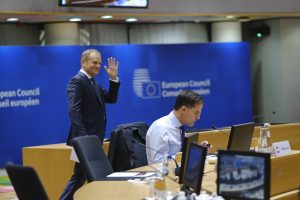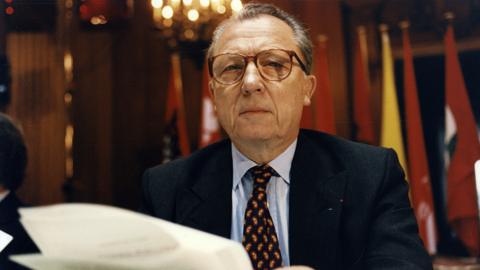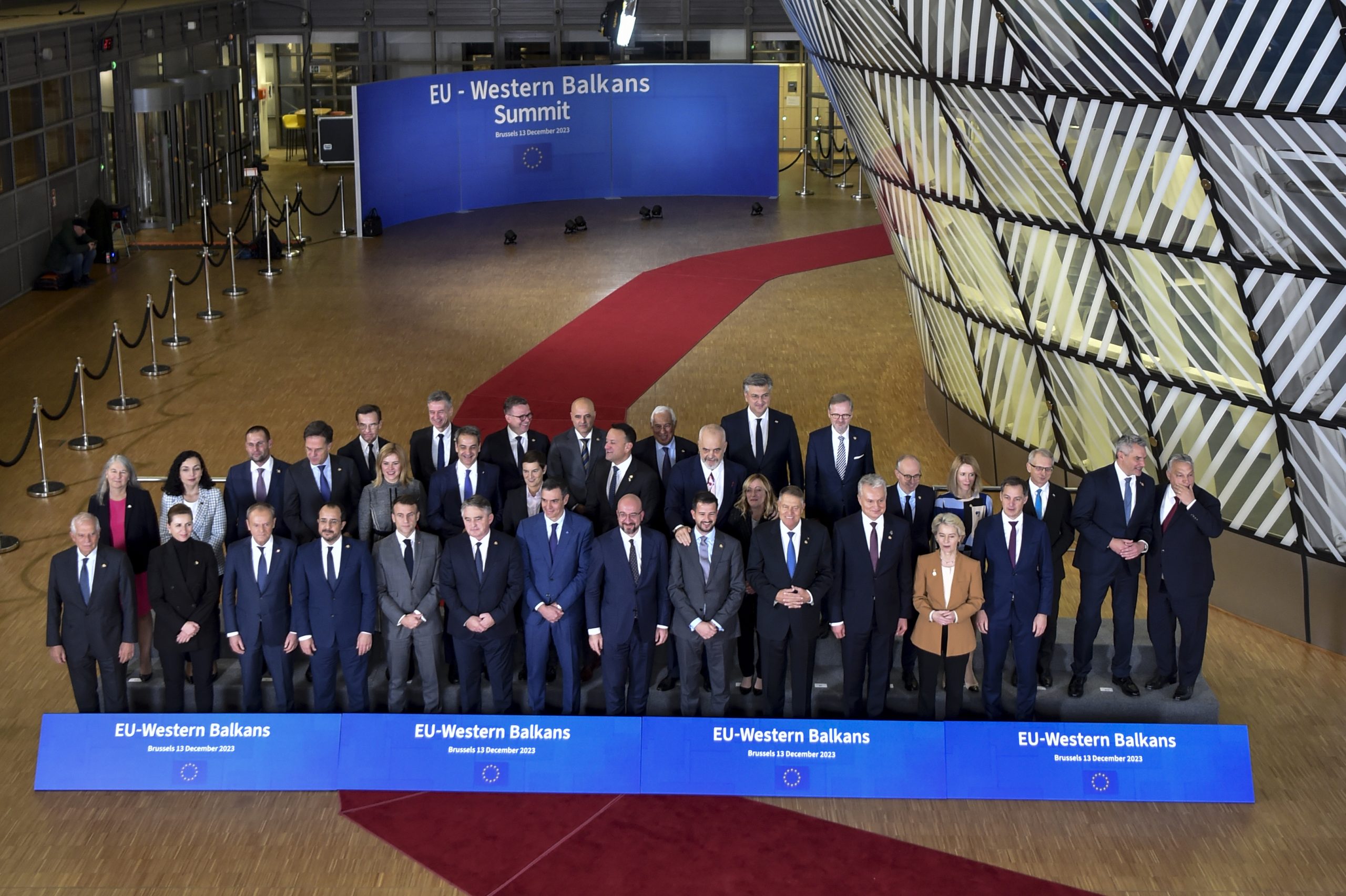On the fringes of the European Council, the recently appointed prime minister and president of the European Commission, Ursula von der Leyen, declared that the pre-financing of the RePowerEu chapter of the NRRP (for which the first payment request has arrived) should be unblocked “by the end of the year” by the actions taken and those planned on the rule of law.
Brussels – After just two days in office, the prime minister has already received “a €5 billion Christmas present” from Brussels. Donald Tusk, the recently appointed prime minister of Poland, expressed his approval of the European Commission’s efforts to provide Warsaw with the pre-financing from the National Recovery and Resilience Plan’s (NRPR) RePowerEu chapter. “After the political change, we take seriously the question of the rule of law, especially when it comes to the use of European funds,” the coalition leader, who at the national level represents the Ursula majority (liberals, social democrats, and popular parties), assured reporters during a press conference alongside Ursula von der Leyen, the chairwoman of the EU executive. And this is where Warsaw’s and Brussels’ cooperative effort begins.
 Today, December 15, a press briefing was conducted at the Commission headquarters, Berlaymont Palace, with a view of the European Council buildings, where 27 leaders have been debating and arguing over important matters concerning the Union’s future for the past two days. “Although these are trying times, our family will greatly benefit from your personal dedication and your expertise in Europe. Speaking of Tusk’s renewed dedication to upholding the rule of law in the governing agenda and his “determination to address all concerns of the EU Court of Justice and the Commission,” von der Leyen stated. The “excellent news for Polish and European citizens” to join the European Public Prosecutor’s Office (EPPO), which presently only excludes Ireland, Sweden, Hungary, and Poland itself (Denmark has opted out), is one of the very first indicators of this. The rule of law issue is also particularly important for Poland’s €59.4 billion NRRP, which was approved by Brussels to be updated with the €24.4 billion RePowerEu chapter for energy independence.
Today, December 15, a press briefing was conducted at the Commission headquarters, Berlaymont Palace, with a view of the European Council buildings, where 27 leaders have been debating and arguing over important matters concerning the Union’s future for the past two days. “Although these are trying times, our family will greatly benefit from your personal dedication and your expertise in Europe. Speaking of Tusk’s renewed dedication to upholding the rule of law in the governing agenda and his “determination to address all concerns of the EU Court of Justice and the Commission,” von der Leyen stated. The “excellent news for Polish and European citizens” to join the European Public Prosecutor’s Office (EPPO), which presently only excludes Ireland, Sweden, Hungary, and Poland itself (Denmark has opted out), is one of the very first indicators of this. The rule of law issue is also particularly important for Poland’s €59.4 billion NRRP, which was approved by Brussels to be updated with the €24.4 billion RePowerEu chapter for energy independence.
(The initial funding was €35.4 billion, of which 22.5 billion came from grants and 11.5 from loans). Von der Leyen emphasised that the Commission is prepared to provide Poland with pre-financing worth €5 billion by the end of the year, underscoring the support for Warsaw’s efforts to “modernise its energy system and foster decarbonisation.” The top EU official firmly reaffirmed that this was a “essential priority,” for which “we need Poland on board.” The Polish PM conceded that “this is not a small gift, these are important funds that will be used to increase our energy sovereignty” while maintaining the connection to the timing of the Christmas holiday. and the next administration will “do its utmost to spend this money appropriately” in accordance with the law: according to Tusk, “the Commission would not have taken this decision without confidence in the restoration of the rule of law.”
Polish Prime Minister Donald Tusk at the European Council (15 dicembre 2023)
President von der Leyen announced that “we have finally received the first payment request” under the Next Generation EU. “We have to work hard, but I am confident that we can resolve all the issues on the rule of law that have prevented us for too long from helping Poland implement the dual digital and green transition,” the president said. The EU leader noted that the current focus of work will be on “reaching the milestones on judicial independence so that we can proceed with the payment.” “The decision is the Commission’s, but the biggest authors of this success are all those who never gave up, who fought for the rule of law in Poland,” the Polish premier conceded. Citizens who “never allowed to break the rules and who in their capacities tried to resolve the issue” as well as attorneys, judges, magistrates, and other officialsNow, “change is taking place,” and Warsaw will “start receiving” EU funds. “Europe is where we belong,” said Tusk in closing.
Tusk’s challenge on rule of law in Poland
Following Mateusz Morawiecki’s Law and Justice party’s (at least temporarily) fall from power, Warsaw and Tusk have embarked on a path of realigning standards of respect for the rule of law, which has caused tensions with Brussels over the last two years. Two decisions made by the Polish Constitutional Court have resulted in an ongoing legal dispute since 2021: first, on July 14, when judges in Warsaw rejected an EU regulation that would have allowed the EU Court of Justice to rule on the “systems, principles, and procedures” of Polish courts; and second, on October 7, The Treaty on European Union (TEU), Articles 1 and 19, and many decisions made by EU courts were deemed by the Constitutional Court to be “incompatible” with the Polish Constitution, casting doubt on the supremacy of EU law.
Polonia Mateusz Morawiecki
Mateusz Morawiecki, a former prime minister of Poland 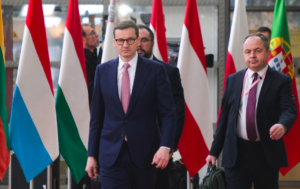
The decision to temporarily halt the disciplinary division of the Polish Supreme Court’s authority stems from a number of arbitrary actions taken against magistrates that the ruling majority found objectionable. The member state is required to pay a daily fine of one million euros by the EU Court of Justice, while the European Commission is conducting infringement procedures. Over half a billion euros, or 526 million, have already been added to the bill between October 27, 2021, and April 14, 2023. The conflict with Brussels was exacerbated on the day when the Polish Constitutional Court ruled that the fines levied on justice and the Turów lignite mine were unconstitutional, following the removal of former premier Morawiecki from office at the national Parliament for a second term.






